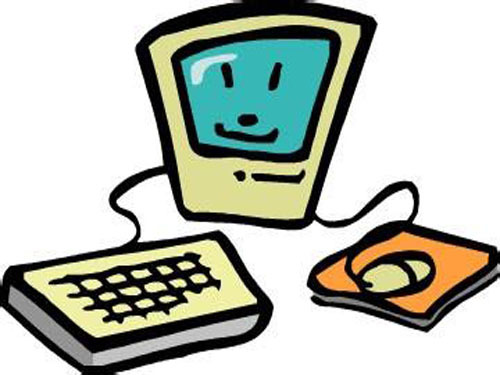
On August 4, 2014, according to foreign media reports, although smartphones, tablets, and tablet phones of different sizes have become increasingly popular, PCs have not died out, at least not yet. Market research company released a report in July that personal computing market this year will experience a "relative recovery."
Of course, the so-called "relative recovery" in Gartner's mouth means that the PC market will continue to decline this year, but it is not as big as last year. The PC market will decline from 9.5% last year to 2.9% this year. The real recovery will wait until 2015. Gartner expects the PC market to grow by 5.3% next year.
Yahoo Finance columnist Henry Blodget said that as long as people still need to work every day, personal computers will not die. He said, "Many CEOs say, 'I rely on my smartphone to control the entire company' because they don't need to do any actual work."
Smartphones may be suitable for subordinate decentralized CEOs, but for large numbers of CEOs who create, use spreadsheets, or enter text or email, they still need a computer. Broget said, "For a long time to come, we still need keyboards and large-size displays at work, and the idea that PCs have disappeared is crazy."
Perhaps one day, smart phones or tablets can replace PCs, but it will take a long time.
Tablet PC growth is slowing. Gartner predicts tablet PC shipments will grow by 23.9% this year. This shows how crazy the growth of the tablet has been, Gartner called the growth rate of 23.9% "slow down."
According to Hubert Joly, CEO of Best Buy, the problem faced by tablet PCs is innovation. "Once a user has a tablet, it is uncertain whether they will buy the next generation."
PC has also faced the same problem. Jolly attributed a significant portion of Best Buy’s PC sales recovery to the suspension of Windows XP. Windows XP shut down prompts users to upgrade the PC.
So far, the changing PC and mobile markets are good news for some tech giants - whether they put their money on hardware, software, PCs or mobile phones.
Take hardware vendor HP as an example. Recently, HP’s PC business unit revenue has seen its first growth for many years. This change is encouraging and leads CEO Meg Whitman to claim that HP will pay special attention to hardware. This year, HP's share price has risen by about 30%.
The biggest beneficiary in the software field is undoubtedly Google. Android software is still the king of undisputed mobile computing, and Android device shipments will grow by 30% this year.
Even Microsoft may get good luck. According to market research firm Gartner, “Windows Phone 2014 will show strong growth in 2014 and it is expected that market share will increase from 4% this year to 10% in 2018.â€
Of course there are apples. Apple's integration of software and hardware has been highly inaccessible to other companies and is still growing. This year, iOS device shipments will grow by 15%.
Given this, it is extremely difficult to predict the future of "personal computing." According to Brogite, the current issue is still inconclusive, and it may take some time before it is clear.
Product Brand:SnCu0.7.SnCu0.3.SnCu3.SnAg0.5Cu0.5.SnAg3Cu.SnAg4Cu.Sn Cu1Ag.
SnCu4Ag1.Sn Cu6Ag2.Sn Sb5
The drafter of lead free solder national standards of GB/T20422-2006.
The drafter of soft solder test method national standards of GB/T28770-2012.
The drafter of lead free solder-chemical composition and type industry standards of SJ001-2007.
Lead Free Solder Wire,Rosin Core Solder,Flux Core Solder,Low Temperature Solder
Shaoxing Tianlong Tin Materials Co.,Ltd. , https://www.tianlongspray.com
![<?echo $_SERVER['SERVER_NAME'];?>](/template/twentyseventeen/skin/images/header.jpg)